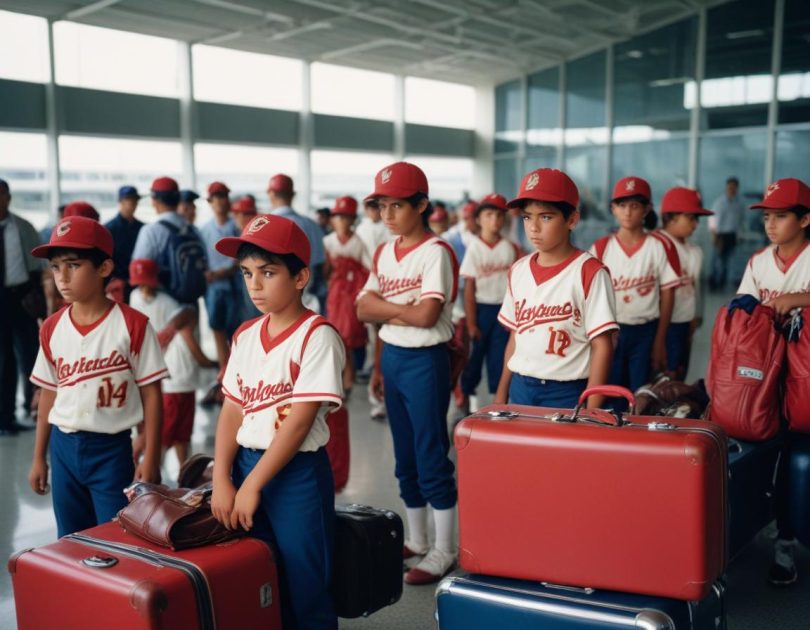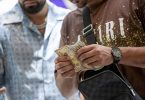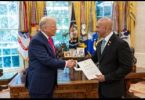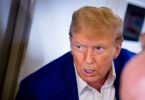Sunday, July 27, 2025
In a heartbreaking turn of events, the Cacique Mara Little League baseball team from Venezuela was denied visas to the United States, preventing them from participating in the Senior Baseball World Series in South Carolina. The team had earned their spot by winning the Latin American championship in Mexico, but due to the Trump administration’s travel ban, they found themselves unable to compete in one of the most prestigious youth baseball events.
The Trump Travel Ban’s Impact on Venezuelan Athletes
In early June 2025, former U.S. President Donald Trump’s travel ban, which restricted entry into the United States from several countries, including Venezuela, caused a significant disruption in international sports. The Cacique Mara team, who had been preparing for the Senior Baseball World Series, were left stranded in Colombia after applying for visas at the U.S. embassy in Bogotá.
The travel ban, which was initially introduced for national security reasons, barred citizens from 12 countries from entering the U.S. This included Venezuela, where the U.S. government has had strained relations due to political tensions. The denial of visas to the Venezuelan Little League team came as a shock, especially after the White House assured that certain sporting events would be exempt from the travel restrictions.
The Disappointment of the Cacique Mara Team
The Cacique Mara team’s disqualification from the Senior Baseball World Series marks the first time in history that a Venezuelan team has been unable to attend this prestigious event. The team was devastated, as they had worked tirelessly to secure their place in the competition after winning the Latin American championship in Mexico.
In a statement, the team expressed their disappointment: “It is a mockery on the part of Little League to keep us here in Bogotá with the hope that our children can fulfill their dreams of participating in a world championship. What do we do with so much injustice, what do we do with the pain that was caused to our children?” The emotional weight of these words highlights the frustration felt by the players, their families, and the wider community.
The Role of the US Travel Ban in Excluding Venezuelan Athletes
Venezuela was added to the U.S. travel ban list by the Trump administration due to national security concerns. While many expected this to impact diplomatic and trade relations, few anticipated the far-reaching effects on international sports. Several teams, like the Venezuelan Little League team, were left unable to attend major international competitions in the U.S.
Earlier in 2025, the Cuban women’s volleyball team was also denied visas to participate in a tournament in Puerto Rico, further highlighting the repercussions of the travel restrictions on athletes from countries affected by the ban. The situation sparked an outcry, with critics pointing out the contradiction in the U.S. government’s stance, particularly after the White House promised that certain sporting events would be exempt from the restrictions.
The White House had initially assured the public that athletes and teams traveling for international sporting events, such as the World Cup or the Olympics, would be allowed entry. However, the Senior Baseball World Series did not fall under this exemption, leaving Venezuelan athletes at a disadvantage despite their qualifications.
The Replacement of Venezuela by Mexico
In a surprising move, the organizers of the Senior Baseball World Series replaced the Venezuelan team with the Santa Maria de Aguayo team from Tamaulipas, Mexico. The Mexican team was the runner-up in the Latin American championship and was automatically selected as a replacement for Venezuela.
This decision has sparked controversy, with many questioning the fairness of replacing Venezuela with Mexico at the last minute. Kendrick Gutiérrez, the president of the Venezuelan league, expressed his frustration: “I don’t understand why they put Mexico in at the last minute and left Venezuela out. This isn’t fair; it’s a decision based on politics, not on merit.”
The replacement of the Venezuelan team highlights the larger issue of how international politics can affect the integrity of sporting competitions. Teams should be selected based on their performance and achievements, not on political considerations. The fact that the team was unable to compete despite their hard work and dedication sends a troubling message about the influence of government policies on youth sports.
International Reactions to the Travel Ban’s Impact on Sports
The exclusion of the Venezuelan team from the Senior Baseball World Series has generated significant backlash from the international community. Many sports enthusiasts, athletes, and advocates for fair competition have spoken out against the travel ban’s impact on youth sports. These individuals argue that the ban penalizes young athletes who have worked hard to achieve success, putting their dreams on hold due to political tensions.
The situation also raises broader questions about the role of politics in sports. Sporting events should ideally be free from political interference, providing an opportunity for athletes from all countries to come together and compete on a level playing field. Unfortunately, the travel ban has undermined this ideal, as it has created barriers for athletes who deserve to be part of international competitions.
The Bigger Picture: Politics and Youth Sports
The denial of visas to the Cacique Mara Little League team is not an isolated incident. As the Trump-era travel restrictions continue to affect athletes from affected countries, it becomes evident that political factors are increasingly influencing the world of sports. For young athletes, these decisions can have far-reaching consequences, not only limiting their opportunities to compete but also potentially impacting their future prospects in sports and beyond.
While governments have the right to protect national security, it is important to consider the unintended consequences these policies can have on the global sporting community. Youth sports play a crucial role in fostering international camaraderie, promoting understanding between nations, and offering young athletes opportunities to showcase their talents. The impact of the U.S. travel ban on these athletes raises concerns about the future of international sports and whether politics will continue to hinder their potential.
Conclusion: A Call for Fairness in International Sports
The exclusion of the Venezuelan Little League team from the Senior Baseball World Series is a sobering reminder of how political decisions can impact the lives of athletes. Despite their impressive achievements, these young players were unable to compete in a global event due to a travel ban that placed political considerations ahead of fairness and merit.
As the global community grapples with the effects of the Trump travel ban, it is essential for future sporting events to prioritize fairness, inclusion, and the true spirit of competition. Athletes should be judged on their talent, hard work, and dedication, not on the politics of their country of origin. By ensuring that political considerations do not interfere with international sports, we can help preserve the integrity of youth sports and allow young athletes from all backgrounds to follow their dreams.











